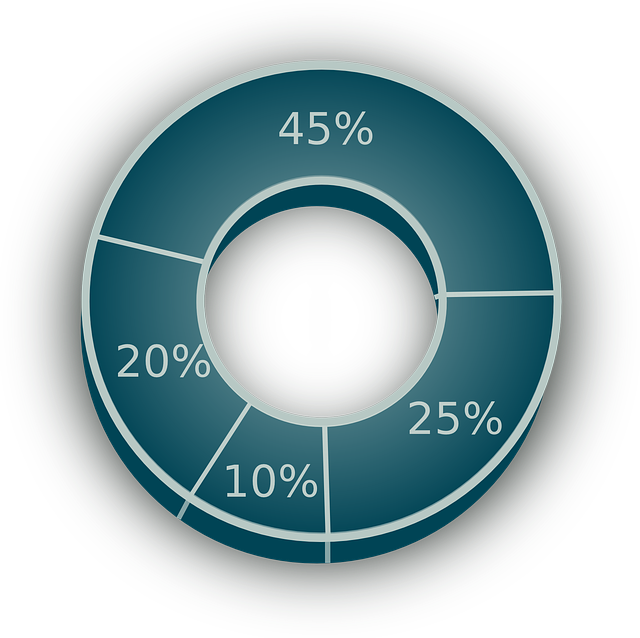A real estate broker is a professional licensed by the state who helps clients buy, sell, or rent properties. They typically have more education and experience in the field than real estate agents, and often have their own brokerage, where they manage other agents. Brokers also have a higher level of responsibility in transactions and are held to higher ethical standards.
Their Duties Include:
Advising clients on market conditions, prices, mortgages, and legal requirements.
Marketing properties through advertising, open houses, and listing services.
Negotiating offers and contracts on behalf of clients.
Keeping up to date with local, state, and federal laws regarding real estate transactions.
Providing guidance and support to less experienced agents in the brokerage
Management Structure And Roles
Associate Broker
An associate broker is a licensed real estate professional who has completed advanced training and education beyond the requirements for a standard real estate agent. Associate brokers have a higher level of experience and knowledge in the real estate market, and they often manage and train other real estate agents within a brokerage. They may also act as intermediaries in real estate transactions, representing buyers or sellers in negotiations and providing expert advice and guidance throughout the buying or selling process. Associate brokers often have a wider range of responsibilities than standard real estate agents and may take on additional managerial or supervisory roles within their brokerage.
Managing Broker
A managing broker in the real estate industry is a licensed real estate broker who is responsible for supervising and guiding a team of sales agents and associate brokers. They oversee the day-to-day operations of a brokerage, manage staff, ensure compliance with industry regulations, and may also be involved in sales and marketing efforts. The managing broker is responsible for the overall success of the brokerage and acts as a liaison between the agents and clients.
Designated Broker
A designated broker in the real estate industry is a licensed broker who is responsible for the legal and ethical operations of a real estate brokerage. They are the person in charge of the brokerage and are responsible for supervising all licensed real estate agents working under the brokerage’s license. The designated broker is responsible for ensuring that all transactions comply with state and federal laws, overseeing the education and training of agents, and managing the financial operations of the brokerage. They serve as the primary point of contact for the state real estate regulatory agency and are legally responsible for the actions of the agents working under their brokerage license.
Brokers and agents work together to serve their clients best interests
Authority
Broker’s Opinion of Value
An opinion of value letter is a document provided by a real estate broker that gives their professional assessment of a property’s worth. It may be requested by a client or used in a legal proceeding such as a property dispute. The broker will typically examine factors such as recent sales of similar properties, local market conditions, and the condition of the subject property to arrive at their opinion.
Liability and Risk
E&O Insurance (Errors and Omissions Insurance)
Errors and Omissions Insurance, also known as professional liability insurance, is a type of insurance policy that brokers can purchase to protect themselves against lawsuits arising from mistakes or oversights in their professional work. For example, if a broker misrepresents a property during a sale, the buyer could sue for damages. E&O insurance would cover the broker’s legal expenses in such a case.
In conclusion, they play a crucial role in the buying, selling, and renting of properties. They are knowledgeable and experienced professionals who provide valuable services to their clients, from market analysis to contract negotiation. By obtaining E&O insurance, they can also protect themselves against potential legal liability.

Errors and omissions insurance is crucial in protecting a brokerage from losses.
A Real Estate Broker Can Operate As A:
- Sole Proprietor: An individual who runs their own business and is responsible for all aspects of the business, including advertising, marketing, and record-keeping.
- Partner: Two or more brokers who work together and share the responsibilities of running a brokerage.
- Corporation: A business entity that is separate from its owners and is subject to certain legal and tax requirements.
- Limited Liability Company (LLC): A type of business structure that combines the liability protection of a corporation with the tax benefits of a partnership.
Where Do They Work?
They can work in a variety of settings, including:
- A real estate brokerage firm: Many brokers own or work for a brokerage firm, where they manage a team of agents and handle administrative tasks such as marketing and record-keeping.
- Independent practice: Some brokers choose to work independently, running their own business and serving clients directly.
- In-house for a company or developer: Some brokers work for a company or developer, managing their real estate holdings and helping to market new developments.
Real Estate Broker vs Real Estate Agent
Real estate agents and brokers both operate in the dynamic and exciting field of real estate, but they have different roles and responsibilities. A real estate agent works for a broker, meaning that the broker acts as the agent’s employer and provides them with support, resources, and guidance in their work. The broker is responsible for overseeing the agent’s activities and ensuring that they comply with all relevant regulations and standards. In turn, the real estate agent is the front-line representative of the brokerage, working directly with clients to help them buy or sell properties. They use their deep understanding of the local real estate market, industry trends, and relevant regulations to guide their clients through the buying or selling process and help them achieve their real estate goals. Despite their different roles, real estate agents and brokers work together to provide the highest level of service to clients and advance their careers in the exciting and ever-evolving world of real estate.
Real Estate Broker and Sales Agent Agreement
A real estate broker and sales agent will establish an independent contractor agreement that outlines the terms of their working relationship. The agreement typically includes information such as the agent’s commission split, their responsibilities, and any restrictions on their activities (e.g., non-compete clauses). The agreement may also specify how the broker will support the agent, such as by providing marketing materials or training.
Real Estate Broker Commission Split
The commission split is an agreed portion of a real estate commission that is paid to the broker and the agent. The exact split will depend on the terms of the broker and sales agent agreement and can vary widely. Some common arrangements include a split of 50/50 or a higher percentage for the broker, with a smaller percentage for the agent. In some cases, the broker may also charge the agent a fee for overhead expenses or services provided, such as access to the brokerage’s marketing materials.

Every brokerage operates differently, and the splits are negotiable.
Becoming a Real Estate Broker
To become a real estate broker, you typically need to:
- Meet the minimum education requirements in your state (which usually include completion of a certain number of real estate courses and hours of experience as a licensed sales agent)
- Pass a broker’s license exam, which tests your knowledge of real estate law, practices, and ethics
- Meet any other requirements set by your state, such as a background check or proof of insurance
- Once you have obtained a broker’s license, you can work for a brokerage firm, start your own brokerage, or work as an independent broker.
What are the requirements?
The education requirements for becoming a real estate broker vary by state, but generally include completion of a certain number of business management courses and hours of experience as a licensed sales agent. Some states also require that you take continuing education courses to maintain your license. Common course topics include real estate law, practices, and ethics, as well as marketing, finance, and negotiation.
Do I need a college degree or certification?
No, a college degree is not a requirement to become a real estate agent or a broker. You will need to complete a certain number of real estate courses and hours of experience before you can obtain a license. You will also be required to take continuing education courses to maintain your license. To be successful as a real estate agent, you will need to be knowledgeable about the local market and have strong communication and negotiation skills.
he Real Estate Broker Exam
The real estate broker exam tests your knowledge of real estate law, practices, and ethics. You’ll be tested on and expected to know:
- Business management practices
- Extensive compliance and co-operation policies
- An immersive look into the real estate transaction process
- Conflict resolution techniques
- Reporting and accounting procedures
License Renewal Requirements
The requirements for renewing a real estate broker’s license vary by state, but typically include completion of a certain number of continuing education courses and payment of a renewal fee. Some states also require that you provide proof of insurance or pass a background check to renew your license. It is important to check with your state licensing agency for specific renewal requirements in your area.
How does a broker impact a realtor‘s success?
A real estate broker provides support and guidance to real estate agents. Some of the services a broker might provide include:
Mentorship and training
- A broker can provide guidance on best practices, help agents improve their skills, and provide training on the latest real estate technologies and trends.
- Marketing and advertising: A broker can help agents promote their listings and services to potential clients.
- Access to resources: A broker can provide agents with access to resources such as software, databases, and marketing materials that can help them be more successful in their work.
- Legal and compliance support: A broker can help agents navigate complex real estate laws and regulations, and provide guidance on ethical practices.
- Commission management: A broker can handle the payment of real estate agents’ commissions and provide support with billing and other administrative tasks.

The secret is to ask as many questions as possible and challenge the answers.
Real Estate Brokers Near Me
The real estate market is highly saturated, with numerous options for realtors to choose from. This saturation can make it challenging for new brokers to establish themselves and grow their business. However, with the rise of technology and the internet, it’s now easier for agents to perform their own research and find credible brokers. By searching online: “Real estate brokers near me” you’ll be provided with choices aplenty. Real estate agents can access information about brokers’ experiences, track records, and customer reviews, allowing them to make informed decisions about who they want to work with. To succeed in this competitive market, real estate brokers must not only be knowledgeable about the industry and the local real estate market, but also establish themselves as credible and trustworthy professionals who put their clients’ needs first. By building a strong reputation and delivering exceptional service, brokers can differentiate themselves and stand out in a crowded market.
Deciding which broker to work for
The best real estate brokerage to work for will vary depending on your individual needs and career goals. Some factors to consider when choosing a brokerage include:
- Commission structure: Different brokerages offer different commission splits and fee structures, so it’s important to choose a brokerage that aligns with your financial goals.
- Training and support: Look for a brokerage that offers comprehensive training and support to help you succeed in your work.
- Reputation: Choose a brokerage with a strong reputation in the local real estate market.
- Technology and resources: Consider a brokerage that provides its agents with access to the latest real estate technologies and resources.
- Culture and values: Choose a brokerage that aligns with your values and professional goals.
Who has the Best Training?
At Shull Homes, we believe that our training program is the best in the industry and is designed to help our real estate agents succeed. Our comprehensive training covers all aspects of the real estate business and provides our agents with the skills and knowledge they need to excel. Whether it’s mastering the latest technology, improving their marketing strategies, or gaining a deeper understanding of the local real estate market, we provide our real estate agents with the tools and resources they need to succeed. At Shull Homes, we are committed to helping our agents achieve their goals and we believe that our training program is a crucial part of that effort. If you’re looking for a brokerage that is invested in your success, look no further than Shull Homes.
Is this a Good Career path?
Whether a career as a broker is a good fit or not depends on individual goals, skills, and preferences. Some benefits of being a real estate broker include:
- Independence: As a broker, you have the freedom to run your own business and set your own schedule.
- Unlimited earning potential: Real estate brokers can earn as much as they want based on their level of success.
- Opportunities for growth: As you build your business and develop your skills, you may have opportunities to grow your income and advance in your career.
- Helping others: Real estate brokers play an important role in helping people buy, sell, and rent properties, which can be a fulfilling and rewarding experience.
What is their average income?
The income of real estate brokers can vary widely depending on several factors, such as location, level of experience, and market conditions. according to the U.S. Bureau of Labor Statistics data from 2021, the median annual wage for real estate brokers was $59,720. However, some real estate brokers earn much more, while others earn less. The key to earning a high income as a real estate broker is to build a successful business and develop your skills over time.
Is it a demanding career?
A career as a real estate broker can be demanding and require a significant amount of time and effort, especially in the early stages of your career. It can be a challenging and competitive field that requires a strong work ethic, excellent communication skills, and the ability to work independently and manage time effectively.
As a real estate broker, you will need to have a deep understanding of the real estate market, industry regulations, and local laws. You will need to constantly stay informed about changes in the market, be able to work with clients and other brokers to negotiate deals, and maintain a professional image. Additionally, success as a real estate broker often requires a strong network of contacts and the ability to network effectively.
That being said, the level of effort and time commitment required can vary greatly based on the broker’s level of experience, the size and type of brokerage they work for, and their personal goals and aspirations. Some brokers may choose to focus on residential sales while others may specialize in commercial or industrial properties. Ultimately, the effort and time required to succeed as a real estate broker will depend on a variety of factors and the individual’s approach to the business.

“Working in Real Estate is demanding. It never stops, but its worth it.”